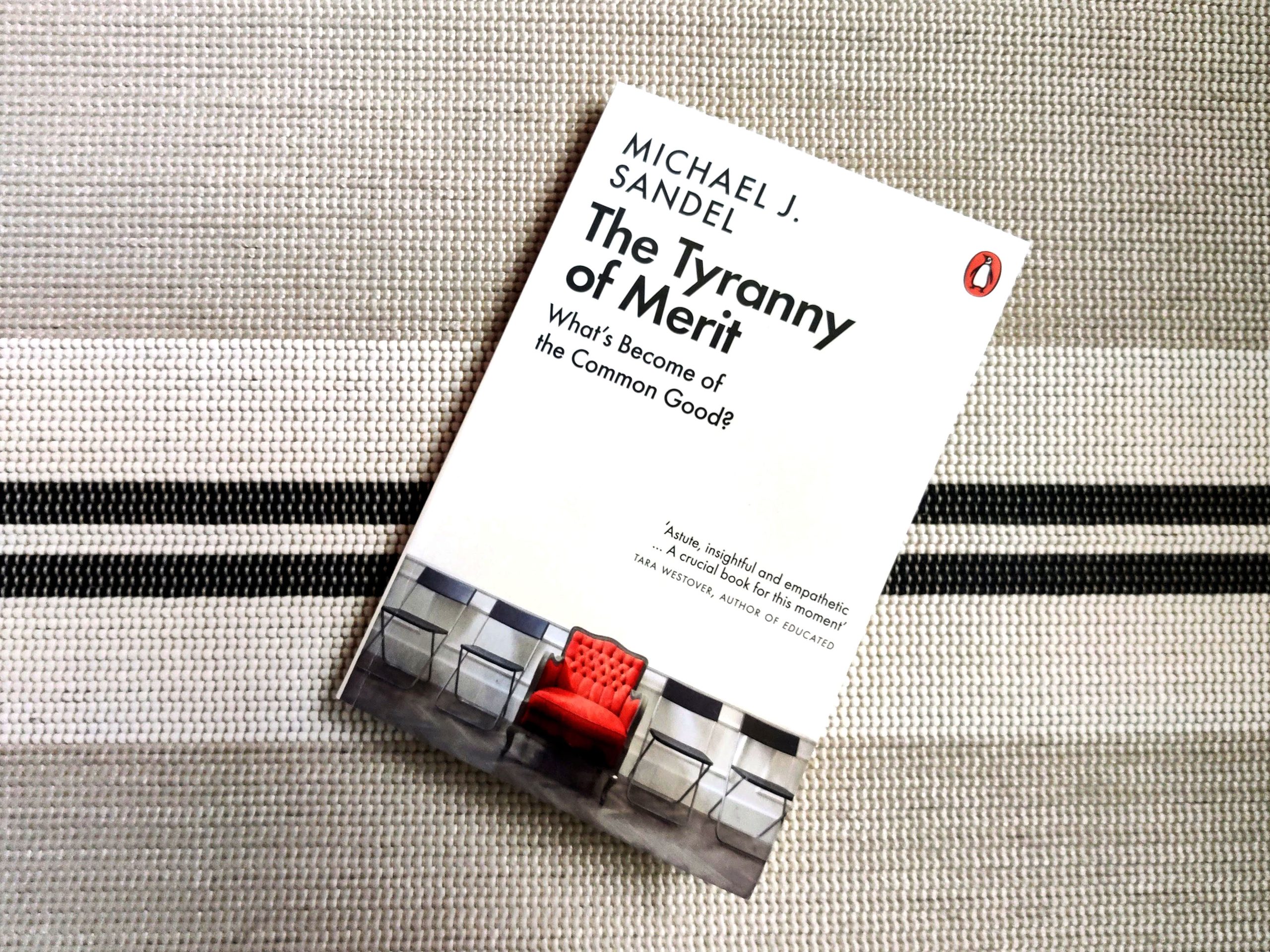As one of the most significant and influental political philosophers of our time, Michael J. Sandel delivers another profound critique of contemporary Western democracy and capitalism in The Tyranny of Merit: What’s Become of the Common Good? Sandel compellingly questions the moral foundation of the political meritocratic promise that suggests everyone can rise as far as their talent and hard work.
Unlike his analysis of distribute justice in Democracy’s Discontent, his previous work, Sandel addresses rising populist discontent in Western societies by focusing on their meritocratic underpinnings and their promise of social mobility. He argues that the United States and most European countries’ economies are increasingly organised as meritocracies, which, he believes, corrode our civic sensibilities.
Those who succeed in a competitive meritocracy, achieving the “American dream”, often believe they have earned their success through their own talent and hard work, even though they are indebted in ways that the competition obscures, for example through good fortune. This belief in being self-made and self-sufficient makes it harder to learn gratitude and humility.
Of course, merit is not entirely negative. First, an economic system that rewards effort, initiative and talent is more likely to be productive. Second, rewarding people based on merit means that discrimination on any other basis than achievement is unlikely. And third, it affirms a certain idea of freedom that we value, namely that we are in control of our destiny.
The downside of merit, however, lies in the fact that it comes with a heavy burden: personal responsibility. If anyone can rise as far as their talent and hard work will carry them, then failing to do so also fully lies with the individual. This downside delivers a crushing rhetoric to those who do not succeed, to those who ‘lose’. On top of that, it also supports policies that attempt to diminish the welfare state by shifting risks from governments and companies to individuals.
Sandel argues that merit-based opportunity allocation in society therefore does not decrease inequality, but instead reconfigues it to align with individual ability. He critiques the moral and political foundations of such a meritocratic economic system as it justifies rather than addresses inequality, fostering a society marked by hubris among the winners and anxiety among the losers, which contradicts human flourishing.
The fortunate man is seldom satisfied with the fact of being fortunate. Beyond this he needs to know that he has a right to his good fortune. He wants to be convinced he deserves it and above all that he deserves it in comparison with others.
Max Weber
The most damning argument against a meritocratic free-market model in The Tyranny of Merit comes from Frank Knight of the Chicago School of economists. Knight argued that market outcomes hold no moral value for two reasons.
First, having talents that enable someone to cater to market demand is no more that person’s doing than if they inherited valuable property. This perspective is also reflected in the philosophies of both free-market liberalism by Friedrich Hayek and of egalitarianism by John Rawls, even though the two theories draw radically different conclusions from it.
Second, and most important, satisfying a market demand is not necessarily the same thing as making a truly valuable contribution to society. It is nothing more than satisfying the needs and desires people have. Wants and needs do not pre-exist, but are formed and transformed by the economic system itself.
Here Sandel, building on Knight’s last argument, comes around to his typical communitarian point of view. He suggests society would benefit from a civic conception of the common good. Instead of maximizing consumer welfare by increasing economic growth, his approach requires that we reflect critically on our common preferences so that we can live worthwhile and flourishing lives. Ethically, the creation of the right wants is more important than mere want-satisfaction.
Echoing Aristotle, Sandel concludes that human flourishing is achieved through the cultivation of our abilities, highlighting our importance as producers rather than consumers in society. He convincingly drives this point home, urging liberal politicians and parties to trade their current meritocratic, consumerist notion of the common good for a civic one that reduces the emphasis on personal responsibility and recognizes individuals’ societal value beyond their market contributions.

Leave a Reply